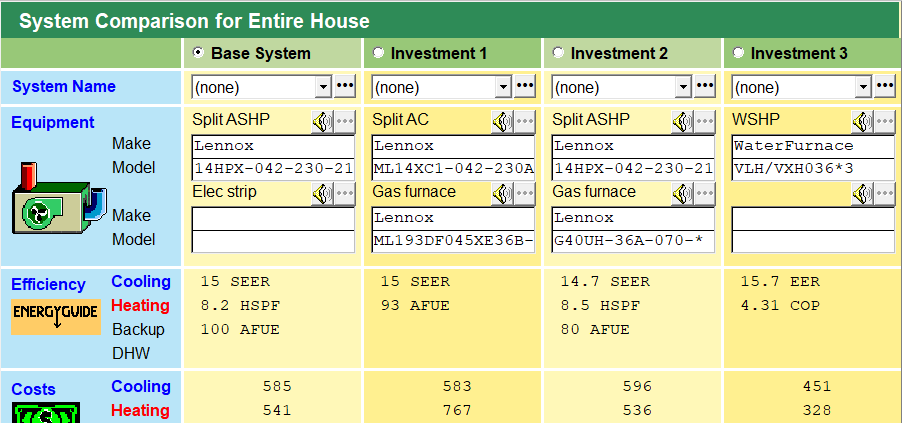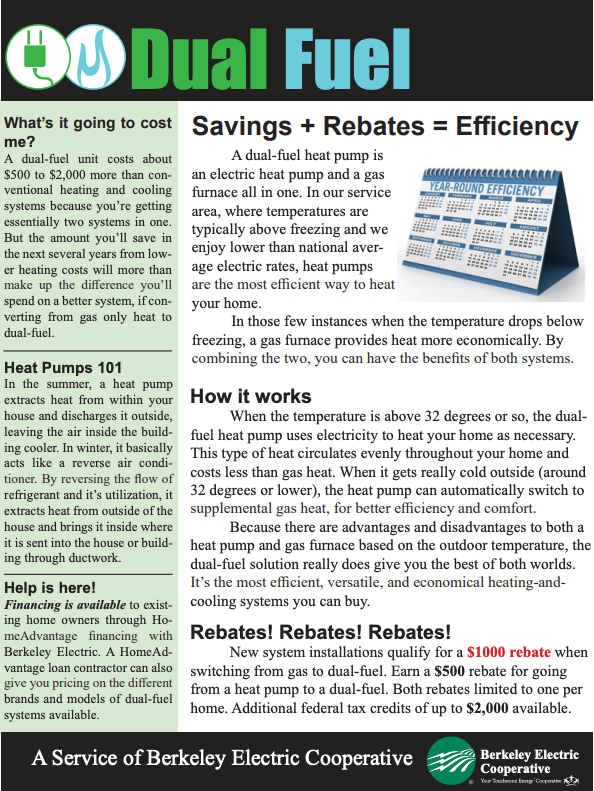
When it comes to heating and cooling your home, why not have the best of both worlds? A high efficiency dual-fuel heat pump uses electricity to heat and cool the home and switches to gas heat backup when the temperature takes a dip during the cold, winter months. Not only can a dual-fuel system save you an average of 30-50% in energy costs it often pays for itself over time.
How? Heat Pump systems can heat a home for less money than gas heating because typically 85% of the heating needs come from first stage heating. Dual fuel systems have first stage heat pump heating systems with second stage gas heating – which replace traditional heat strips. This can be package or split system with propane or natural gas.
New system installations may now qualify for up to a $1000 rebate through Berkeley Electric Cooperative’s Dual Fuel program when switching from gas to dual fuel. Members can also qualify for up to $2,000 in federal tax credits as well.
A $500 rebate is available to members switching from a heat pump to a dual fuel system. Both rebates are limited to one per home.
So why not earn up to $3,000 in savings toward making your home more comfortable and energy efficient?
Need financing? Berkeley Electric offers up to $15,000 at a fixed rate of 5% through our Home Advantage Loan program - click here.
For more information about the Dual Fuel Heating program please e-mail us. For additional heating and cooling rebates visit our Earth Connect program page.
Savings for customers on comparison> new home:
- Natural Gas heating at 93% AFUE and $1.55 per therm
- Heat pump with 80% efficient gas backup at 12.5 cents per kWh
- Heat pump HSPF 8.5
Operating cost comparison:
(All heat pump systems based on 15 SEER, existing 10-year-old home with 1909 sq. ft., includes electricity cost for heating)
Heat Pump Heating: $541 per winter
Natural Gas Heating at 93% AFUE: $767 per winter
Dual Fuel Heat Pump with 93% AFUE back up: $536 per winter
Geothermal system at 4.31 COP: $328 per winter
Air source heat pumps can offer significant heating savings compared to natural gas and propane.
Comparison based on Wrightsoft Suite HVAC software comparison (updated 10/23)


